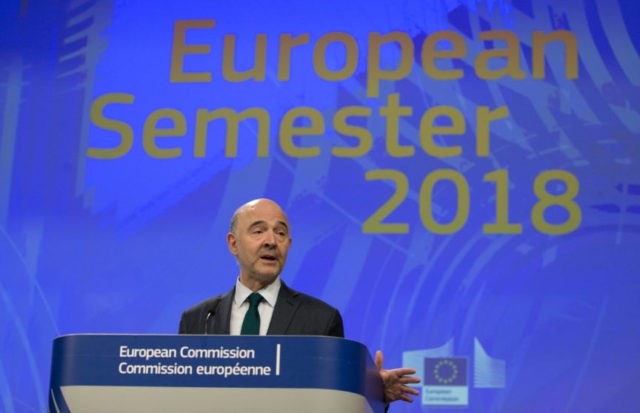BRUSSELS (AP) — The European Commission criticized seven member states Wednesday for “aggressive” tax policies designed to undercut others to attract multinational companies, a censure that prompted a sharp rebuke from the leader of one of the countries cited.
The European Union’s executive branch pointed the finger at Belgium, Cyprus, Hungary, Ireland, Luxembourg, Malta and the Netherlands, arguing that they have engaged in tax policies that undermine the integrity of the European single market.
“These practices have the potential to undermine the fairness and the level playing field in our internal market and they increase the burden on EU taxpayers,” said Pierre Moscovici, the commissioner responsible for tax policy.
“We must be sure that fair taxation becomes the rule, a rule without any exceptions, outside the EU and inside the EU,” he added.
While dismissing the notion than any one country in the EU operates as a tax haven and arguing that progress is being made, Moscovici said it’s imperative that those named bring forward plans to end policies that undermine the credibility of the EU.
The criticism follows widespread concern over how some countries have used their tax regimes to attract multinationals, such as Apple, Facebook and Google. The concern is that the companies end up paying far less tax than they should to the detriment of European taxpayers.
Many tax campaigners think the EU should have a minimum corporate tax rate and push for a tax regime that reflects exactly where companies earn their profits.
“The big offenders are not just distant tropical locations like Panama and Bermuda,” said Sven Giegold, tax justice spokesperson for the Greens in the European Parliament.
For one prime minister, the criticism was unfounded and against the long-term interests of the EU.
“I think the principle of the European Union is not to point out one country now against another,” Xavier Bettel, the prime minister of Luxembourg, said ahead of a meeting with Donald Tusk, the president of the European Council, which coordinates the views of the EU’s 28 member states.
“It would have been more opportune and efficient to speak with the countries before and try to have an exchange on these different topics,” Bettel said.
Bettel also objected to the idea that tax harmonization in the EU should equate to tax increases at a time when the Trump administration in the United States has slashed taxes, particularly on businesses.
“My problem now is when we speak of harmonization, what is the idea of harmonization, it’s never to get down taxes, it’s always how we will raise taxes up,” he said.
“We should not forget that thousands of jobs also are in Europe and we might lose them if companies decide to move to the United States because they will be more efficient.”
___
Pylas contributed from London.

COMMENTS
Please let us know if you're having issues with commenting.